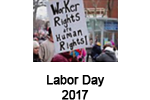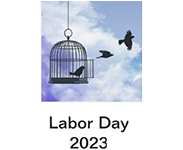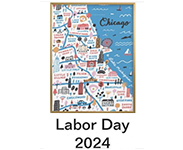An Attorney to Fight for You!
Affordable Rates
Executive Compensation
I frequently provide essential legal and practical advice to a wide variety of executive employees and other professionals, such as C-Level individuals (CEO’s, CFO’s, COO’s), Presidents, Vice-Presidents, Officers, Partners, Executive Directors and other Director-Level individuals, General Managers and other Manager-Level individuals, Medical Professionals (Doctors, Dentists, Psychiatrists, Psychologists, Advanced Practical Nurses, RN’s), Attorneys (Partners and Associates), Engineers, IT Software Developers and Specialists, and Stock Brokers and high frequency Investment Specialists (as well as other high-level employees and professionals) in banking/ investment/ manufacturing/ pharmaceutical firms, etc.
This advice (gleaned from my extensive experience) covers the gamut of: a. pre-employment advice (reviewing, revising, and negotiating proposed employment contracts); b. advice during employment (rights and options with regard to the executive employee’s employment contract, various relevant laws, and other practical considerations of the factual and legal situation and circumstances); and c. post-employment advice/ litigation (severance review and negotiation, and advice concerning my client’s rights and options depending on the legal and factual circumstances of each matter, as well as initiating and defending litigation where warranted and desired).
Pre-Employment Advice
When a potential Employer presents a proposed employment contract to a high-level employee (and even to many medium level employees) its terms are not necessarily etched in stone and inflexible – and do not let the Employer mislead you into believing otherwise.
Frequently I have been able to succeed (either behind the scenes through my client or through direct negotiations with the Employer) in making important revisions to the proposed employment contract that have numerous positive practical results for my client:
- making revisions to terms in the proposed employment contract (and adding terms) that result in more monetary and non-monetary benefits, and more protections, for my client;
- attempting to narrow (or even eliminate) non-compete/ non-solicitation clauses, so that my client will not be unduly limited if his/her employment is to end (either through being terminated or through wanting to leave for better employment options). Under certain circumstances I can have obtain garden leave provisions put into the contract (or improve such provisions) so that my client would receive salary while the post-employment non-compete/ non-solicitation agreement is in effect, and I also have been successful in having the duration of the restrictive covenant reduced;
- providing my client real protection and peace of mind regarding the language of “For Cause” termination clauses (both with regard to revising those clauses as well as having those clauses inserted into the employment contract). Note that not all “For Cause” termination clauses are built the same, and depending on what language is contained in the clause this may give the Employer too much leeway to terminate the individual for any little thing – or even based on nothing more than a vote of the Board based on nothing. Notably, even overly subjective “For Cause” termination clauses still require the Employer to exercise good faith (see Parise v. Integrated Shipping Solutions, Nov. 2017), but it is far better for the Employee to have tighter and verifiable “For Cause” language. Indeed, done right the language of such a clause may actually offer the employee real protection from an unwarranted termination, as well as a real opportunity to cure an otherwise justifiable termination. Sometimes a little tweak, or major revision, by me can make all the difference; and
- providing my client with real severance protection and benefits. The devil is in the details, not just as to the amount of severance (which I sometimes try to increase), but also with regard to under what circumstances the employee is eligible to receive that severance (e.g., change-in-control, transfer to a new location, material change in position, “For Cause” termination, etc.), and under what circumstances it may end/ cut-off (e.g., will it end if you obtain any new employment, a similar level employment, or as is usually the case will that not cause severance to end).
Advice During Employment
I frequently provide advice – one-time consultations as well as ongoing advice – to my clients, and assist them (both behind the scenes through my clients communicating with their Employers or with my direct communication with the Employers, where warranted) during the time when they are employed toward having my clients best know their rights and options, and protecting their employment. This is discussed in greater detail at Ongoing Employment Advice.
Post-Employment Advice/ Litigation
I also frequently consult with high-level employees who have been notified that their employment is to be shortly terminated, or who have recently been terminated from their employment.
Sometimes my clients have been offered severance, in which case I review the severance agreement and often propose revisions and/or monetary/ benefit increases. This is discussed in greater detail at Severance Agreement Negotiations.
I also advise my clients concerning their rights and options depending on the legal and factual circumstances of the matter. Sometimes this also involves initiating and defending litigation (where warranted and desired).
There is Added Complexity and Opportunity with Executive Compensation
The cold hard truth (good for high-level employees, but not so good for lower-level employees) is that higher-level employees have more and better options. The reason for such different treatment generally is that certain employment positions require individuals with specialized training, skills, and abilities. In large part it is a matter of supply and demand: there is a smaller supply of such talented individuals, and many Employers realize that hiring the right high-level individual can greatly positively impact the Employer’s short-term and long-term bottom line (and in some cases can even determine whether or not the Employer continues to exist/ thrive).
The employment contracts for these high-level employees also have added complexity, added pitfalls, and provide added opportunities for such individuals to be duly rewarded (both monetarily and otherwise) for their efforts and successes. Some (but not all) of these relevant issues for the content of the employment contract have been described/ discussed above, but the categories also include the following:
- Cash Compensation – Salary; signing bonus; relocation assistance.
- Incentive Arrangements – cash and other performance bonuses (performance of the individual and/or the Employer, and whether discretionary or fixed – note that Illinois Courts have held that an individual’s legal entitlement to such bonus can very much be dependent on the structure/ language used in the bonus clauses); commission structure; stay bonuses; stock options; RSU’s; and other equity-based awards (amount, structure, and vesting schedules).
- Benefits – health insurance (who is to pay – and all/part? Note also that there are different levels of coverage); pension/ 401k match; HSA contributions and matches; vacation/ holidays/ other paid personal time (and whether or not there are to be “use it or lose it” provisions); tuition reimbursement; company car/ car allowance; travel exclusively in business or first class; hotel-level; limitations on frequency of required travel; payment/ reimbursement for dues in professional organizations and for memberships in social and health clubs and other organizations.
- Restrictive Covenants and other Penalty Clauses – Non-compete/ non-solicitation clauses (with or without garden leave); invention/ patent ownership and rights; allowed outside employment/ activities while employed by the Employer; indemnification clauses; prevailing party attorney fee clauses; blue pencil clauses; jurisdiction/ choice of law clauses; and confidentiality and non-disclosure clauses (which some Employers attempt to use as back-handed non-compete/ non-solicitation clauses). Note that the law has recently changed on these issues, and is different in different states. Moreover, these clauses have real-world applications and consequences for employees, and having a few different words in such clauses can make all the difference to an employee having options in the future verses being at risk in the future.
- Duration of the Employment/Employment Contract – how long the Employment Contract is to be in effect, and how it gets extended and/or ends (automatically extended or instead ends if no other action taken).
- “For Cause” Provisions – circumstances in which the employment may end through termination or voluntary resignation (“For Cause” and notice requirements); and what shall be the particular “For Cause” clauses (there is a wide variety, with significantly different protections for the Employee, including also whether there is an opportunity to cure alleged violations).
- Severance – contingencies for severance, and under what circumstances the employee is eligible for severance. This is discussed in greater detail at Severance Agreement Negotiations.
I use tried and true checklists, dozens of sample employment contracts, and my own expertise from years of experience. When necessary I also can consult with, or can direct you to consult with, tax and benefit experts toward having tax implications and related issues understood and addressed.
A consultation with me (in person or by e-mail and telephone) can make all the difference – and a real positive impact – in your employment and career (financially and otherwise).



















